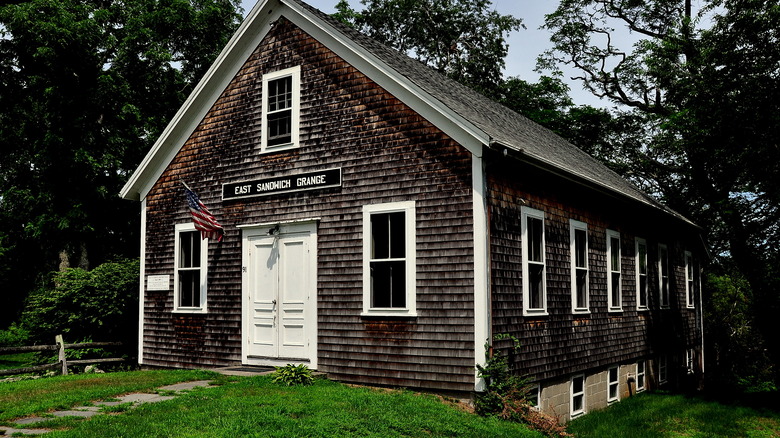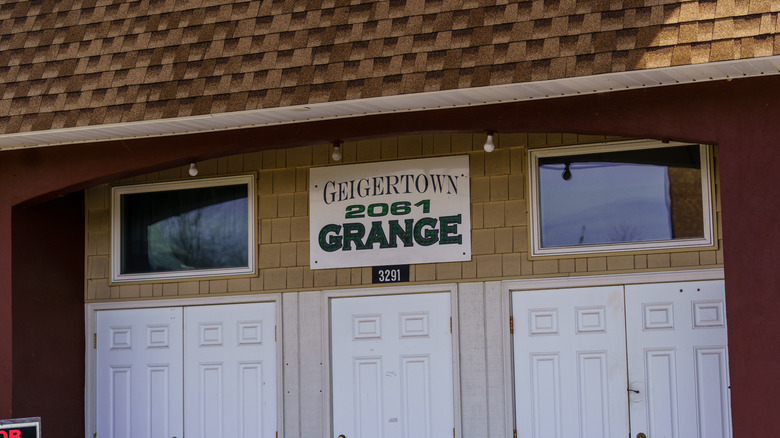What You Should Know About The Granger Movement Of The 1860s
If you've spent any time in the rural United States, chances are you've seen a grange hall. Grange halls often served as community centers within rural towns, hosting events like dances, quilting bees, potlucks, and town meetings, but their main purpose was to provide a meeting house for members of the Order of the Patrons of Husbandry, also known as the Grange. Per the Minnesota Historical Society, the Grange was founded by Minnesota farmer and agricultural innovator and leader Oliver Kelley and six other members of the United States Bureau of Agriculture after Kelley's niece Caroline Hall offered encouragement and ideas for how the organization should function. The Grange's purpose was to advocate for and educate farmers and agricultural workers and provide a centralized place for them to share information and techniques.
The Order of the Patrons of Husbandry was officially founded in 1867 and was the first successful national farming organization. According to the National Grange website, the organization's motto was (and remains) "In essentials, unity; in non-essentials, liberty; in all things, charity." The Grangers had secret rituals similar to those of fraternal organizations such as the Masons, of which Kelley had also been a member, per History Daily.
In the midst of the 1873 national financial crisis, the group became decidedly political. Some of the first activist work taken on by the Grange included opposing the manufacturing and processing monopolies that fixed grain and livestock prices, putting farmers at a disadvantage. By 1873, there were over 700,000 Grange members across 9,000 nationwide chapters.
Granger court cases changed American policy and law
The Grange also had a voice within Washington, D.C. working with other organizations on issues from railroad regulations to farm loans to universal suffrage. Per Britannica, by 1877 the first of what had been nicknamed the "Granger cases" had made their way all the way to the Supreme Court. In 1871, Illinois farmers got state laws passed that capped the rates charged by railroads and grain-storage facilities. Minnesota, Iowa, and Wisconsin followed suit with similar laws that were challenged in courts all the way to Washington. A Chicago grain-storage facility's challenge to Illinois' law gave ride to Munn v. Illinois, which was the most significant of the Granger cases; the Supreme Court upheld the state legislation, ruling that a private enterprise that affects the public interest can be subject to regulation by the government.
Outgrowths of the Granger Movement included several independent political parties focused on farmers and agricultural concerns. Grange leadership encouraged members to only vote for candidates who promoted agricultural interests and to turn to the independent parties when the major parties' support was insufficient. As those parties rose in influence, the Granger movement from which they originated fell out of favor.
The Order of the Patrons of Husbandry lives on, however. Per the National Grange website, the organization "strengthens individuals, families and communities through grassroots action, service, education, advocacy and agriculture awareness." They continue to take what they call "hometown words and policies" to Congress, just as they did in the Grange's earliest days.

